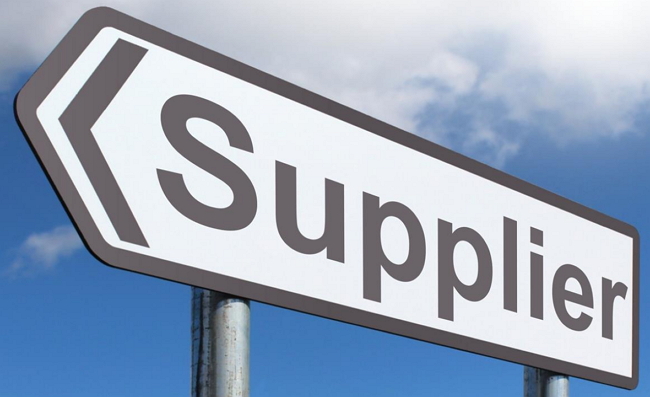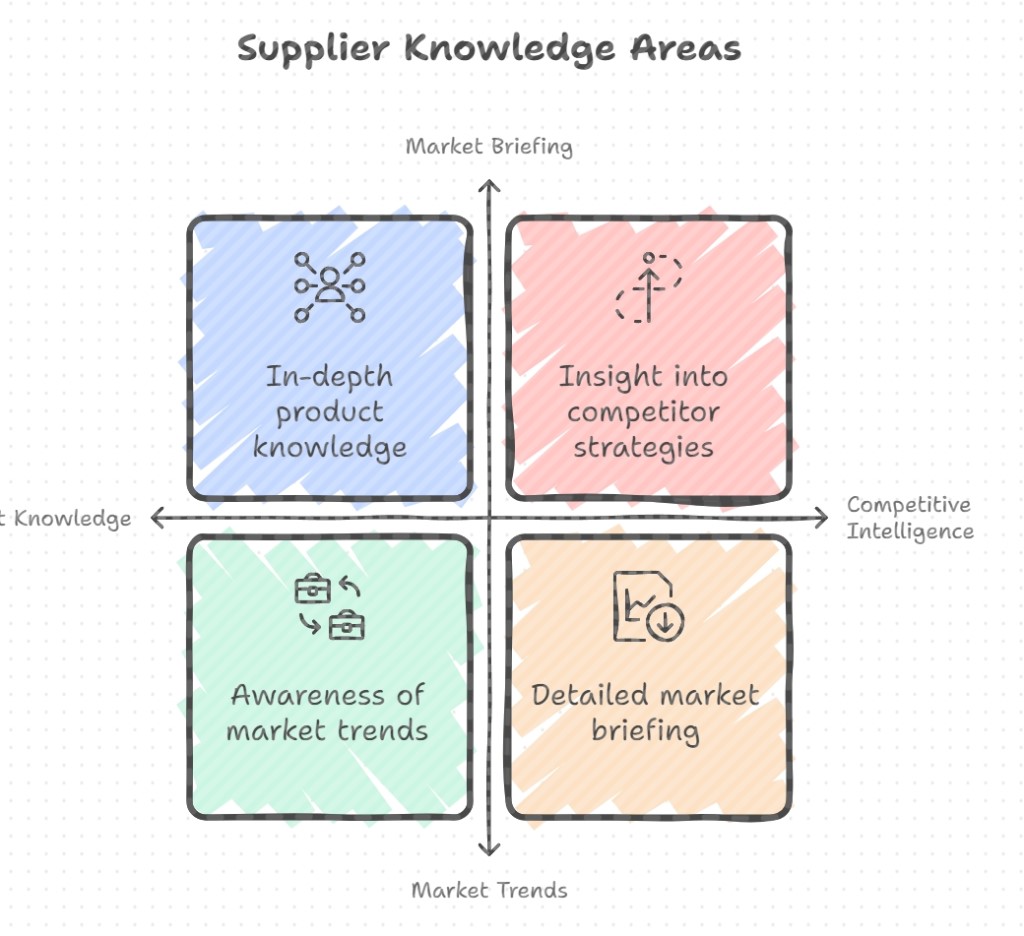
Suppliers occupy a unique position in our business ecosystem. They're crucial – after all, they provide the products we sell. However, their priorities may not always mirror our own. Navigating this paradox is a skill that can set your business apart.
Pros: The Supplier
Suppliers often hold a wealth of knowledge about:
- They know a lot about the products.
- Suppliers' agents travel, and they know what is happening in the market and the trends.
- Suppliers are better briefed as to what is happening with their market
- They know what your competitor's strategies are and what they are doing.

They may be able to offer you a better deal.
This information can be precious, but it's up to us to tap into it effectively. Whether you are planning a business trip or organizing your supplier interactions, having the best planner app can help streamline your process by tracking key details and optimizing your time management.
Cons: The Supplier
- A supplier rep will tend to prioritise their company's interests over yours, potentially leading to biased advice or recommendations.
- They do not have a comprehensive view of your business needs
- Over-reliance on a supplier might limit your ability to negotiate effectively with other suppliers.
- Managing relationships with supplier reps can be time-consuming
It's important to note that these are potential drawbacks and the actual impact would depend on how the relationship with the supplier representative is managed within the broader context of your supplier relationship management strategy.
Supplier Relationship Management
This requires supplier relationship management (SRM), which isn't just some fancy term by business consultants.
It's a critical strategy for any business, but we need to answer one crucial question:
What importance does each supplier hold for your organisation?
The Data Goldmine of Your POS System
Here's where your POS system becomes your secret weapon. In seconds, you can determine this information about your suppliers' performance. Here is how you do it:
- Open your POS system.
- Navigate to Cash Register Reports > Sales - Stock > Supplier Stock Sales for a Given Period.
- Select the last financial year
- Hit that 'Generate Report' button
In seconds, you'll have a detailed summary of sales by supplier. You can see precisely how each supplier contributes to your bottom line.
Here are the key areas to focus on:
Quantity Kings: Bringing in the Crowds
Look for the suppliers topping the 'Quantity' column. These are your traffic drivers whose products people are coming to buy from your shop. This is what is bringing customers into your shop.
Profit Champions: Paying the Bills
Next, check out the leaders in the 'Profit' column. These suppliers might not sell the most units but contribute significantly to your bottom line. They're the ones keeping the lights on, and the staff paid.
Putting the Data to Work: My Personal Experience
When I ran this report for a customer, they were shocked to discover that one of their small suppliers was so profitable. They had been focusing all their energy on others and neglecting this hidden gem.
Armed with this information, they actually:
- Renegotiated terms with this top profit-generating supplier
- Allocated more shelf space to their products
The result? A 14% increase in profitability in just a few months.
In Conclusion: The Data-Driven Path to Supplier Success
In our current retail ecosystem, instinct-based decisions are increasingly obsolete. Leveraging your POS system's data with relationship-building solid prowess can elevate supplier interactions from mundane necessities to crucial differentiators.
Don't underestimate your POS system – it's not merely a cash register. It is so much more. Consider it a powerful business intelligence platform. Take the plunge, run those reports, and unveil unexpected supplier insights. You might stumble upon a hidden asset.
Frequently Asked Questions about Supplier Relationship Management (SRM)
What is meant by supplier relationship management?
Supplier relationship management (SRM) is a systematic approach to evaluating and partnering with suppliers. It involves assessing suppliers' strengths, performance, and capabilities to your overall business strategy. SRM aims to maximise the value of supplier interactions by creating closer, more collaborative relationships with key suppliers to uncover new value and reduce the risk of failure
What are the 5 key points of SRM?
While there isn't a universally agreed-upon list of 5 key points, we can identify these crucial aspects of SRM:
- Supplier segmentation and classification
- Supplier strategy development and execution
- Performance measurement and feedback
- Collaboration with suppliers
- Continuous improvement of your dealings with your suppliers
What are the five types of supplier relationships?
- Buy the market relationship
- Ongoing relationship
- Partnership
- Strategic alliance
- Backward integration
What are the three basic components of supplier relationship management?
We can here identify these core elements of SRM:
-
Supplier evaluation and segmentation: Assessing suppliers' strengths, weaknesses, and strategic importance to your business
-
Relationship development and management: Cultivating personal relationships with suppliers and building trust and mutually beneficial partnerships
-
Performance monitoring and improvement: Continuously tracking supplier performance, providing feedback, and working collaboratively to enhance the relationship and outcomes


